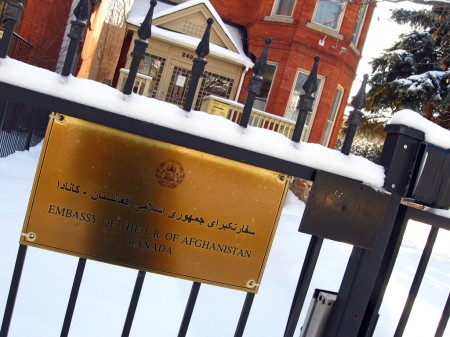
On Yes, Prime Minister, a character describing a situation in which a document was leaked discusses the difference between what you do when you really want to find the source of a leak and what you do when it is all just for show. When it is for show, he says, you conduct a leak inquiry. If it is for a serious investigation, you call in ‘Special Branch’.
Reading through the Wikipedia entry on ‘Special Branch’ gave me a bit of pause. It seems like the term is used to refer to two different types of sub-organizations, within broader security structures like national police forces and armies.
Outward intelligence gathering
One sort of Special Branch is the macho Jack Bauer sort that wears flak jackets and drops in on terrorists from helicopters. They are also the ones with the machines for listening to private phone calls and reading private emails, back doors into supposedly confidential databases, and other such legally dubious trickery.
Having some kind of organization of this sort is important – especially for keeping genuinely dangerous things like biological and nuclear weapons away from terrorists. At the same time, giving such an organization an increasingly broad mandate just increases the risk that the organization itself will become abusive, or that the intelligence it collects will be used for inappropriate purposes.
There has to be some kind of meaningful, outside, civilian scrutiny of such organizations. If they are allowed to sit up at the top of the chain deciding who can trust who, we cannot allow them to be a secretive band of unknown people. It may render them less effective as an intelligence organization, to be subject to civilian oversight, but it is ultimately important for the security of society that this be so.
Quite possibly, governments shouldn’t have any organizations that they are not prepared to appear before a fairly elected legislature (in secret, perhaps) and answer detailed questions about.
Internal oversight
The other sort of Special Branch answers the question: Quis custodiet ipsos custodes? They are a response to the reality that organizations like armies and police forces attract bullies – people who are themselves attracted to power. At times, such people will abuse that power. That danger is increased enormously when the people are put within structures that will protect them, regardless of what they do. If the police force protects officers who use excessive force, their violent tendencies are likely to get worse.
Having a Special Branch to check for this kind of corruption in the rest of the service makes a lot of sense, and is an important check on police power. After all, a bad police officer is a scary thing. They are armed with weapons and power, and the judge will almost always take their word for how a situation went (unless there are photos or a video).
Changing balance
On Yes, Prime Minister, I think they were talking about the internal sort of Special Branch, looking for wrongdoing within powerful organizations. These days, I fear the outward-looking type of Special Branch has grown more powerful by comparison, partly by capitalizing on the fear people have of terrorism (despite the tiny chance of being a victim).
When people are fearful of non-governmental forces, they can easily err and make the government overly mighty. People also need to maintain in their minds the corresponding fear of abuse by government itself. The government is so powerful that it can do considerable harm by accident, and its control over information is such that we may never really know what accidents or abuse have taken place.
Terrorists can kill some innocent civilians – maybe a lot if they get hold of something dangerous. But the police can create a police state. They can seize the government with one of their own by force, if the other institutions of the state become weak enough. We need independent people watching over them more than we need them to be looking into the local radical cell.






